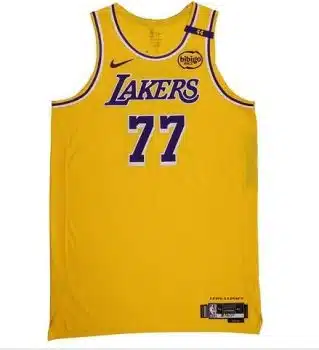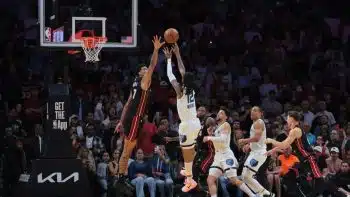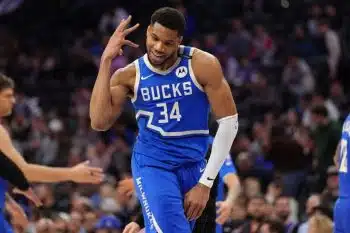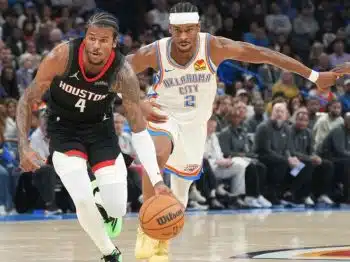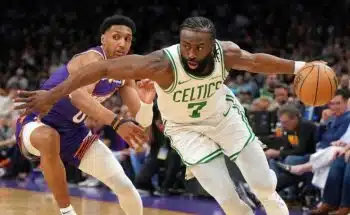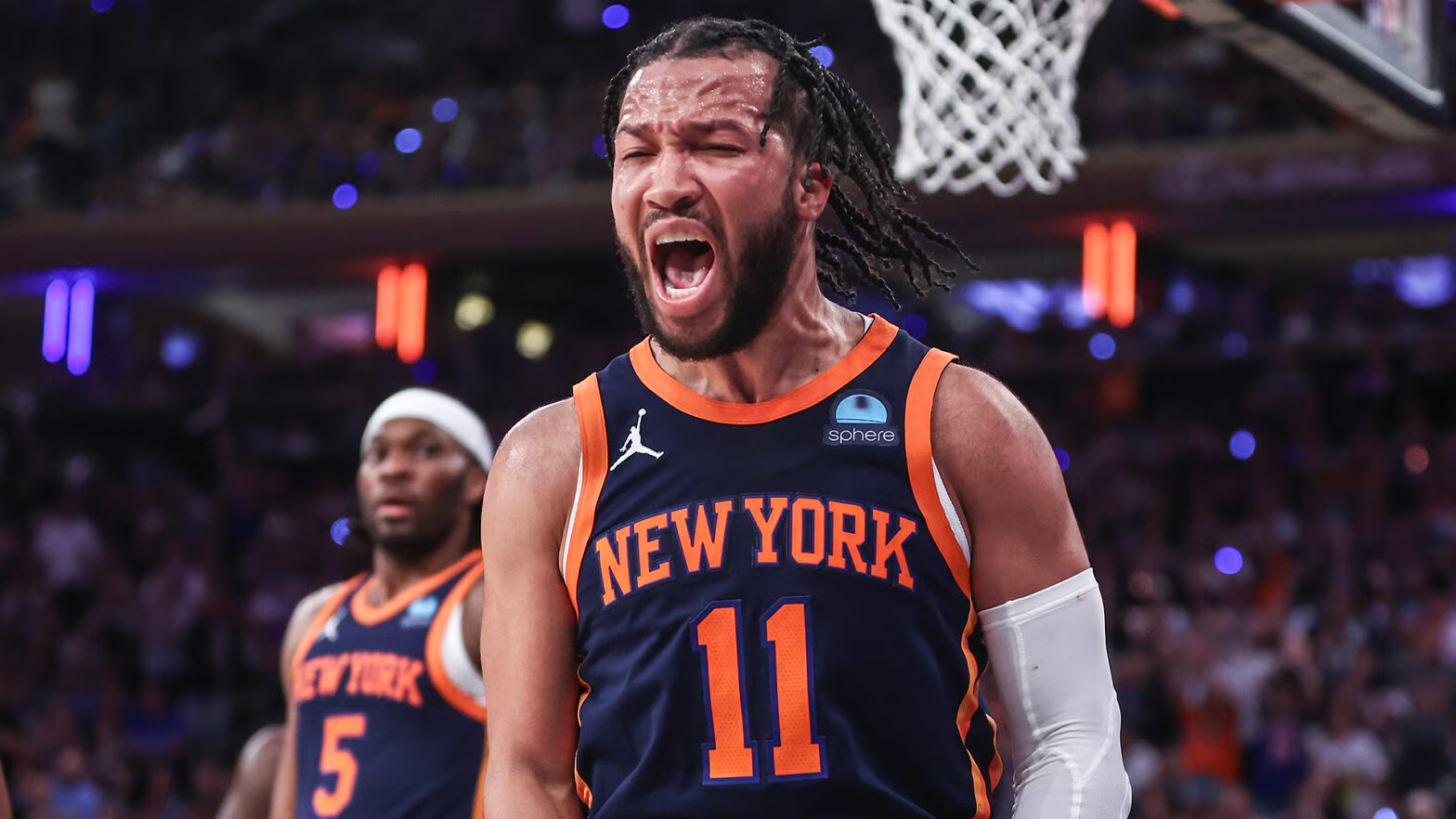NBA
NBA PM: 6 X-Factors to Watch in the Playoffs
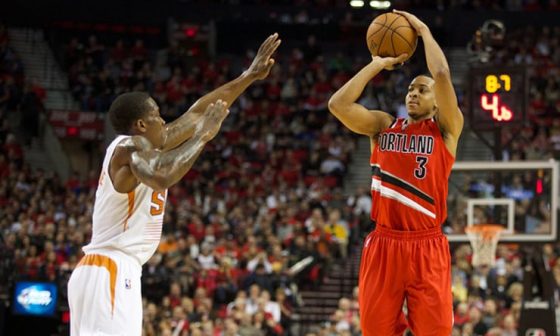
As fun as the regular season can be, the postseason is where the real drama takes place. It is when star players step up for their teams and, at times, single-handedly take over a game or a series. Guys like Stephen Curry, Tim Duncan, James Harden, Chris Paul, LeBron James, John Wall and Kyle Lowry are the type of star players who will either step up and lead their team to victory or come up short and allow their team to suffer an early postseason exit.
But sometimes we see unexpected players step up and become a key difference-maker in a postseason game or series. For example, in the 2013 playoffs, Nate Robinson was excellent for the Chicago Bulls and, essentially, won a crucial Game 4 on his own against the Brooklyn Nets. The Bulls went on to win that series 4-3, largely on the back of Robinson, who was filling in for an injured Derrick Rose.
Entering this year’s postseason, there are a couple of role players who could be the X-factor, the surprise contributor that swings a game or even a series, for his respective team. Here is a list of six such players to keep an eye on entering the playoffs.
Matt Barnes, Los Angeles Clippers
Matt Barnes entered this season in a terrible shooting slump (three-of-36 from the field through six preseason games). It got so bad during the preseason that some members of the media opined that Barnes could be the weak link that could prevent the Los Angeles Clippers from competing for a championship this season. Whoops. Turns out, at age 35, Barnes is not a weak link, but instead continues to be an underrated key contributor for a Clippers team that is dangerously thin at the wing-positions.
On the season, Barnes is averaging 10.1 points, four rebounds and 1.5 assists while shooting a respectable 36.2 percent from three-point range. This is the second-highest three-point percentage Barnes has ever shot in a season, and it comes on the highest number of attempts per game in his career (4.9). His ability to knock down shots is a huge asset for the Clippers, who rely on Barnes and J.J. Redick to hit open three-pointers while Paul, Blake Griffin and DeAndre Jordan do most of their damage within the three-point arc.
We get an even better idea of how important Barnes is to the Clippers when we look at his on/off court numbers. When Barnes is on the court, the Clippers score 114.1 points per 100 possessions and hold opponents to just 102.1 points. That is good for a +12.0 net rating, which is the second highest mark behind only Paul (+12.2). And when you take Barnes off the court, the Clippers have been outscored 0.2 points per 100 possessions, which isn’t too surprising given how ineffective Los Angeles’ bench has been all season. In fact, the Clippers’ starting unit has been the third most effective five-man unit in the league all season (among lineups that have played 350 minutes or more), with a net rating of 17.7 (behind only the starting fives from the Golden State Warriors and Cleveland Cavaliers). This team will need its starting unit hitting on all cylinders and playing heavy minutes if it hopes to make a deep postseason run.
Another reason Barnes could be a key difference maker for the Clippers is because of who is behind him on the depth chart. His backups at small forward are currently Hedo Turkoglu and Jordan Hamilton. The Clippers are so shallow at small forward that we should expect Clippers head coach Doc Rivers to implement his three-guard lineup of Paul, Redick and Jamal Crawford at various points throughout the postseason. Those three give Rivers a lot of offensive firepower, but leave the team’s defense even more vulnerable on the wing than usual (can we really expect Redick or Crawford to slow down Kawhi Leonard or Draymond Green?).
This is where Barnes will be most important for the Clippers. Their offense has been at the top of the league all season, but it is their defense that has been, at best, inconsistent. Barnes is still the closest thing Los Angeles has to a lock-down wing defender, and it will be his responsibility to slow down the opposing team’s go-to perimeter scorer. Whether he is able to do that successfully, while spacing the court with his three-point shooting, could be the difference between a first-round exit and a deep title run for the Clippers.
C.J. McCollum, Portland Trail Blazers
It’s hard to not feel bad for the Portland Trail Blazers at this point. On March 6, shooting guard Wesley Matthews went down with a torn Achilles tendon, which will keep him sidelined until next season. Losing Matthews was a massive blow to the Trail Blazers, but at least they had Arron Afflalo (acquired in a trade with the Denver Nuggets) to take over as the starting shooting guard. Unfortunately, Afflalo recently suffered a right shoulder strain that will likely keep him sidelined for the first few games of the postseason. This means that second-year guard C.J. McCollum will need to step up and fill the void left by Matthews and Afflalo.
The good news is that McCollum has played very well recently. Over his last seven games, McCollum is averaging 16 points, four rebounds and 2.3 assists while shooting 34.8 percent from beyond-the-arc. Over that same period of time, when McCollum is on the court, the Trail Blazers are scoring 111.6 points per 100 possessions and giving up just 94.3, which is good for a very impressive +17.4 net rating. But when McCollum has been off the court, the Trail Blazers have been abysmal, giving up 114.5 points per 100 possessions, while scoring just 99.4. There is certainly some noise in those numbers, but the outrageous swing in performance is telling.
McCollum is a difference maker for this squad. He is fighting through an injured ankle right now, but hopefully he will be close to 100 percent for the beginning of the postseason. Portland will need him at his best in order to advance out of the first round, which won’t be easy considering they will likely play a team like the Houston Rockets or Memphis Grizzlies and won’t have home court despite being the fourth seed.
Jason Terry, Houston Rockets
The Houston Rockets have been dealing with injuries all season. Dwight Howard and Terrence Jones were both sidelined for significant stretches earlier in the year. Most recently, Donatas Motiejūnas was lost for the season due to a back injury and Patrick Beverley was lost to a torn wrist ligament. Beverley recently underwent season-ending surgery, leaving his place in the starting lineup to veteran sharpshooter Jason Terry.
Two weeks ago, I took a look at how losing Beverley would affect the Rockets moving forward, and found that his defense has been surprisingly average this season and that Terry is well-equipped to fill Beverley’s role on offense.
Since Beverley suffered his injury on March 23, Terry has averaged 8.7 points, 1.6 rebounds and 1.9 assists while shooting 40.4 percent from three-point range. These numbers aren’t eye-popping, and are slightly down from what Beverley was producing before injuring his wrist (10 points, 4.2 rebounds and 3.4 assists). However, the main thing that Terry brings to the Rockets is his three-point shooting and Terry’s 40.4 percent average on 4.7 attempts is more efficient than Beverley’s 35.6 percent on 5.8 three-point attempts.
With 16 seasons of experience, a championship ring, a track record hitting clutch shots and the third-most three-pointers of all time, Terry has the potential to swing a game or even a series in Houston’s favor. He is going to struggle to contain opposing point guards and he has never been a great distributor, however, the Rockets have the means to switch long defenders on opposing point guards and James Harden handles the bulk of ball-handling duties for Houston. If Terry can do what he does best, which is spreading the court with his shooting and knocking down big-time three-pointers, then he will be a big reason why Houston makes a deep postseason run. If he isn’t able to do these things, Harden and the Rockets may suffer an early exit.
J.R. Smith, Cleveland Cavaliers
When the Cleveland Cavaliers acquired J.R. Smith from the New York Knicks, many fans and analysts thought he was just a throw in and that Iman Shumpert would be the major acquisition from the three-team deal with the New York Knicks and Oklahoma City Thunder. Turns out Smith has been more than just a throw-in and Smith has been silencing his critics since arriving in Cleveland, as our Alex Kennedy detailed thoroughly back in late February.
In 45 games with the Cavaliers, Smith is averaging 13 points, 3.6 rebounds and 2.5 assists per game on 39.3 percent shooting from three-point range. Incredibly, Smith is averaging a career high 7.4 three-point attempts per game with Cleveland, which may seem like a bad thing initially (Smith has a reputation for being a chucker), but it isn’t when you consider that Smith is taking mostly efficient catch and shoot three-pointers. He is currently ranked 10th in catch and shoot percentage among players shooting 3.5 of these shots per game (41.4 percent), which is helping the Cavaliers’ starting lineup score a blistering 116.1 points per 100 possessions.
In fact, Smith has become a key member of arguably the best starting lineup in the league.
Lineup Data Courtesy of NBA.com/stats
As we can see, Cleveland’s starting unit rivals that of the Golden State Warriors, and is even outperforming the Clippers’ formidable starting unit.
We all know that Smith is capable of single-handedly shooting his team out of a game, but he has an established role in Cleveland and is playing extremely well within it. As long as Smith is taking open three-pointers and playing tough defense, he is likely to have as big of an impact for the Cavaliers in the postseason as anyone not named LeBron James or Kyrie Irving.
Nikola Mirotic, Chicago Bulls
Derrick Rose, Joakim Noah, Jimmy Butler, Pau Gasol. These are the Chicago Bulls’ star players, but rookie forward Nikola Mirotic has steadily improved throughout the season and has established himself as a key rotation player.
Since March 1, Mirotic is averaging 18 points, 6.6 rebounds and 1.4 assists per game. Surprisingly, he is shooting just 29 percent from beyond-the-arc in that same period of time and just 31.7 percent for the season. Mirotic is known best for being a knockdown shooter from distance, so it’s interesting that he has been so effective without hitting the long-ball consistently (especially considering he leads the Bulls in on-court net rating).
Regardless of his below-average percentage from distance, opposing defenses respect his shot and will try to prevent him from getting open looks from deep. It’s not hard to understand why either. In the Bulls’ game against the Brooklyn Nets, Mirotic hit six of his 11 three-point attempts and finished with 26 points. Mirotic is capable of having these sort of breakout games on any given night (in March he had two three-game stretches in which he scored well over 20 points per game), which in the postseason could be the difference between a win and a loss.
Mirotic hasn’t been the most consistent player in the league this season, but he has the potential to break down an opposing defense on his own and open up the court for his teammates with his shooting. Mirotic can disappear on any given night, but he also can take over a game with his scoring and three-point shooting.
Khris Middleton, Milwaukee Bucks
The Milwaukee Bucks currently have the second best defensive rating in the league (99.2), and a major reason for this is third-year swing-man Khris Middleton.
Middleton has made a name for himself this season by being ranked in the top 10 in ESPN’s Real Plus-Minus metric, which measures a player’s estimated on-court impact on team performance, taking into account teammates, opponents and other factors. That’s right, Middleton is ahead of names like DeMarcus Cousins, John Wall, Tim Duncan and many other star players.
The interesting thing about Middleton’s impact is that it doesn’t come through posting outrageous individual stats. He is averaging 13.3 points, 4.4 rebounds and 2.3 assists per game while shooting 40.4 percent from beyond-the-arc. Those are solid numbers to be sure, but they don’t compare to someone like Cousins or Wall.
Middleton is more like Draymond Green of the Golden State Warriors, who doesn’t post big individual statistics, but does a lot of other things to help his team win games. When Middleton is on the court, the Bucks are holding opponents to just 96.1 points per 100 possessions, while scoring 102.9 points. It’s not surprising that Middleton is second on the team in on court net rating (+6.9), but it is surprising just how much the Bucks drop off once he goes to the bench. When Middleton is off the court, the Bucks give up 103.9 points per 100 possessions and score just 96.8. That is a -13.9 net swing in the wrong direction and shows just how valuable Middleton is to the Bucks.
Consider that Anthony Davis is a top-five player in the NBA, a one-man wrecking crew for the New Orleans Pelicans, and that his team would probably be unable to compete on a nightly basis without him. However, the difference in net rating from when he is on the court to when he sits is -11.4 points, which is huge, but falls behind Middleton’s numbers. Of course, each team dynamic is different and these numbers are affected by the teammates a player is on the court with. But Middleton’s impact is confirmed by his RPM rating, which, to a certain extent, accounts for these variables.
The point is that Middleton makes his teammates better, is a lock-down perimeter defender and has a silky smooth jumper from three-point range. If the Bucks are going to get past the Bulls in the first round, it will be in large part because of him. There are bigger names in Milwaukee, but Middleton will likely be the biggest difference-maker for the Bucks in the postseason.
These are just some of the role players who could help swing a series for his respective teams. Let us know in the comments section who else could be an X-factor in the postseason.
All stats are courtesy of NBA.com/stats and basketball-reference.com.

